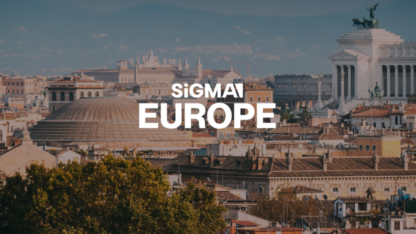Know Your Customer (KYC) verification is a fundamental component of Customer Due Diligence (CDD), enabling organizations to authenticate client identities and adhere to stringent global regulations. The global KYC software market has been projected to reach USD 6.73 billion by 2025, reflecting the growing emphasis on regulatory compliance and the need for efficient identity verification solutions.
As businesses navigate an increasingly complex compliance landscape, selecting the right KYC software is crucial for streamlining processes, enhancing security and improving customer experiences. The following guide explores the top-performing KYC tools in 2025, highlighting their key features and how they address the challenges of modern compliance.
What Is KYC Software?
KYC software is a critical compliance solution that enables businesses to verify customer identities and meet Know Your Customer (KYC) regulatory obligations. As part of the Customer Due Diligence (CDD) process, it automates the collection and validation of personal data, such as names, addresses and official ID documents, to ensure individuals are who they claim to be.
Modern solutions often include pre-KYC checks to flag high-risk users early, cutting onboarding costs and preventing fraud upfront. In addition to identity verification, KYC tools support ongoing monitoring, risk scoring, and AML screening, key to reducing financial crime and ensuring smooth, compliant onboarding.
Top Features of KYC Software
When evaluating KYC software, look for features that go beyond basic identity checks to support smarter, more efficient onboarding and compliance. Key capabilities include:
- Digital footprint analysis: By assessing data points such as email, phone number, IP address and behavioral signals, you can build a clearer picture of a user’s online presence. This form of pre-KYC screening helps identify risky users early, before costly ID verification, and accelerates onboarding for trusted customers.
- Document verification: A core component of the identity verification process, this feature validates whether an ID is genuine, expired, forged or stolen. Solutions may use image forensics, database checks, or biometric matching to ensure documents are legitimate and accurately linked to the person presenting them.
- Device intelligence: This feature identifies and analyzes the devices users interact with and detects signs of emulators, virtual machines or suspicious configurations often linked to fraud. It helps distinguish between trusted and high-risk devices, contributing to more accurate risk scoring and stronger identity validation.
- Integrated AML screening: Many KYC tools come with built-in Anti-Money Laundering (AML) checks, automatically screening users against watchlists for politically exposed persons (PEPs), sanctions and known criminal entities. Real-time monitoring flags suspicious activity and ensures regulatory compliance across jurisdictions.
- AI and machine learning capabilities: Leading KYC solutions use AI to detect patterns, predict risk levels and adapt to emerging fraud tactics. These technologies enhance accuracy, reduce false positives and allow teams to make faster, data-driven decisions throughout the customer lifecycle.
List of KYC Software & Tools
1. SEON
SEON helps businesses strengthen their onboarding process by detecting fraud early, before costly KYC checks begin. While it’s not a full KYC solution, SEON acts as a powerful pre-KYC filter by analyzing digital signals that fraudsters can’t easily fake. This reduces KYC volume, saves operational costs and prevents bad actors from progressing through the funnel.
By combining digital footprinting, device intelligence and real-time behavioral biometrics, SEON enables dynamic, data-driven assessments that go far beyond static identity checks. It supports a broader strategy of identity risk management, helping businesses reduce manual reviews, automate decisioning and maintain a smooth experience for legitimate users.
Key Highlights:
- Pre-KYC risk filtering: Detect suspicious users before ID verification using digital, device and behavioral signals.
- Real-time risk scoring: Instantly assess risk based on email, IP, phone and user behavior without any added friction for trusted users.
- Device & behavioral intelligence: Identify emulators, virtual environments and anomalous usage patterns linked to fraud.
- Integrated AML screening: Automate compliance by checking against sanctions, PEPs and crime databases in real time.
- AI-powered automation: Reduce manual reviews with machine learning-driven scoring and customizable rules.
Discover how SEON uses email, phone, and IP data to detect fraud early, streamline onboarding, and boost security with real-time insights.
SEON’s Digital Footprint
2. Sumsub
Sumsub is an all-in-one identity verification platform that helps businesses streamline onboarding, prevent fraud, and stay compliant across global markets. With support for over 40 interface languages and the ability to verify users in under 50 seconds, it’s built for speed and accessibility. Sumsub offers a wide range of checks—including ID verification, liveness detection, proof of address, and AML screening—all customizable to fit different risk levels, jurisdictions, and regulatory needs.
The platform is used across industries such as fintech, crypto, iGaming, and transportation, and adheres to global and local compliance standards like FATF, FCA, and BaFin. Its no-code automation tools make it easy to create and manage verification flows for the entire customer lifecycle—from onboarding to high-risk transactions. With high pass rates and robust fraud protection, Sumsub enables companies to scale confidently while ensuring security and compliance remain intact.
3. iDenfy
iDenfy is a global platform for identity verification, fraud prevention, and compliance, offering complete solutions for KYC, KYB, and AML needs. It supports onboarding in over 200 countries and territories, using a mix of AI-driven tools and 24/7 human review to deliver fast, accurate results. iDenfy handles verification for more than 3,500 types of government-issued IDs, includes 3D liveness detection, and provides real-time checks against sanctions and PEP lists. Built to serve industries like fintech, crypto, and gaming, it helps businesses stay compliant, prevent fraud, and reduce onboarding costs.
What makes iDenfy stand out is its hybrid approach—automated ID checks combined with expert oversight—making it both scalable and reliable. Companies only pay for approved verifications, avoiding charges for failed or fraudulent attempts. The platform also supports customizable KYB workflows and ongoing AML screening, with integration available via API. Whether verifying individuals or businesses, iDenfy offers a flexible and secure way to meet compliance goals across global markets.
4. Onfido
Onfido’s Real Identity Platform combines artificial intelligence, biometrics, and document verification to support over 2,500 types of ID documents from 195 countries. It’s designed to help businesses onboard users efficiently, meet global KYC and AML requirements, and reduce fraud risk—all without adding unnecessary complexity.
With liveness detection, facial biometrics, and automated decisions powered by its Atlas AI, Onfido delivers both speed and accuracy. Manual review is available for edge cases, maintaining high verification quality. The platform also includes AML tools like PEP screening and transaction monitoring, making it suitable for industries with strict compliance needs. Onfido integrates easily via API or the Smart Capture SDK, and workflows can be customized using its no-code tool, Onfido Studio. It’s a flexible solution trusted by global organizations to scale onboarding and prevent identity fraud.
5. Alessa
Alessa offers identity verification and KYC tools within a broader AML compliance platform built to scale with business growth. It combines real-time identity checks, risk intelligence, and due diligence in one system, helping organizations onboard customers efficiently while staying compliant. Alessa integrates with data providers like Refinitiv World-Check, Dow Jones, and Thomson Reuters, enabling teams to verify identities, screen against sanctions and PEP lists, and access detailed background information.
What sets Alessa apart is its focus on ongoing monitoring and seamless integration across the entire compliance workflow. Identity verification results can be fed directly into transaction monitoring, risk scoring, and regulatory reporting, giving compliance teams a complete view of client risk. The platform automates routine checks while allowing for customization based on industry or risk profile, making it suitable for businesses operating in complex regulatory environments. With daily risk updates and a 360° client view, Alessa helps streamline decision-making and investigative work.
6. Actico
Actico, which offers full digital transformation and decision automation products for some of the world’s leading financial institutions, also offers a complete compliance suite. It is designed specifically for AML, KYC, sanction list and PEP screening, and transaction screening. It also provides trade surveillance and even plays nicely with the renowned Avaloq Core banking system.
Companies currently relying on Actico include Santander, Volkswagen Financial Services, and ING, among others, and there is a definite focus on traditional banking rather than, say, neobanks or challenger banks.
7. LexisNexis
LexisNexis Risk Solutions provides KYC and due diligence tools that help businesses verify identities, assess risk, and comply with global regulations. The platform gives access to over 7 million profiles, updated daily, and screens across 60+ risk categories, including sanctions, PEPs, and adverse media. Designed to reduce false positives and speed up onboarding, it helps teams focus on real threats while maintaining compliance with AML, CFT, and beneficial ownership rules.
Organizations can automate both initial and ongoing due diligence, monitor customer activity in real time, and use biometric verification and document analysis to prevent fraud. With coverage in over 30 countries and a wide network of global data sources, LexisNexis enables efficient, scalable onboarding across markets. Its tools are adaptable to complex regulatory needs and built to support secure, long-term customer relationships.
8. Ondato
Ondato is a Lithuania-based compliance platform offering end-to-end KYC, KYB, and AML tools to support identity verification and customer onboarding. Its SaaS solution includes biometric facial recognition, video ID checks, age verification, and AML screening, all designed to simplify compliance without adding friction.
Trusted by companies like Swedbank and General Financing, Ondato supports verification in 192 countries and helps reduce onboarding costs with automation and customizable workflows. The platform also features a centralized customer data hub, transaction monitoring, and due diligence tools for managing risk across the user lifecycle. With fast integration, high accuracy, and a focus on user experience, Ondato is well-suited for industries like finance, crypto, telecom, and the sharing economy. Its flexibility and responsiveness to regulatory changes make it a practical choice for businesses looking to streamline compliance while maintaining security and trust.
9. Jumio
Jumio is a digital identity verification and identity assurance platform that offers KYC identity verification through a combination of document checks, biometric authentication, liveness detection, and database validation. It enables organizations to verify users in real time while minimizing friction during onboarding. With support for thousands of ID types across more than 200 countries and territories, the solution is designed for global coverage and regulatory alignment.
Beyond initial verification, Jumio incorporates ongoing risk assessment through behavioral signals and identity reputation analysis. Its platform includes an analytics dashboard that centralizes monitoring, transaction review, and rule management, helping businesses make informed compliance decisions.
10. Shufti Pro
Shufti offers AI-powered KYC software designed to streamline identity verification, enhance fraud prevention, and support global compliance. Its solutions include eKYC, KYB, KYI, and biometric authentication, with coverage across 240+ countries and support for 150+ languages.
Shufti’s flexible tools help businesses onboard users, verify transactions, and meet AML/CFT regulations with real-time accuracy. Known for its adaptability, wide geographic reach, and user experience, Shufti supports industries like fintech, crypto, gaming, and e-commerce in building secure, scalable onboarding and compliance workflows.
Partner with SEON to stop losing money to fraud, and save money with pre-KYC checks.
Speak with an Expert
How to Choose the Right KYC Software
Choosing the right KYC software goes beyond ticking a compliance checkbox — it’s about building a safer, smarter onboarding process that detects fraud early and adapts to evolving risks. Modern KYC tools combine data enrichment, automation, and machine learning to support real-time decision-making without adding unnecessary friction.
Here are four key factors to consider:
- Use digital footprint analysis. Screen users early by analyzing emails, IPs, phone numbers, and behavioral patterns to identify high-risk profiles before document checks.
- Verify documents effectively. Look for biometric and forensic checks that detect forged, expired, or stolen IDs with accuracy.
- Leverage device intelligence. Identify suspicious setups like emulators or virtual environments to spot fraud attempts.
- Ensure integrated AML screening. Real-time watchlist and sanctions checks are critical for ongoing regulatory compliance across regions.
Frequently Asked Questions
KYC software is one of the most convenient solutions for automating Know Your Customer checks. These are legal requirements in a growing number of industries, including finance, iGaming, and crypto exchanges. KYC software can help you avoid compliance fines and accelerate customer verification to onboard more new customers without spending additional resources.
KYC stands for Know Your Customer. It is a set of guidelines that come from local regulators to ensure businesses know who they are dealing with.
The minimum requirements include knowing the customer’s full name, address, and date of birth. It usually involves checking an ID document such as a driver’s license, passport, or residency certificate.
KYC checks often combine multiple technologies for a layered approach. Real-time ID and liveness verification allow users to upload documents like passports or licenses. Biometrics, such as face or voice recognition, help confirm identity at the authentication stage. Blockchain can store verified ID data anonymously for reuse. Digital footprint analysis uses online behavior, devices, and contact info to assess user legitimacy. AI and machine learning automate parts of the process, helping scale KYC verification while supporting faster, smarter risk assessment.








